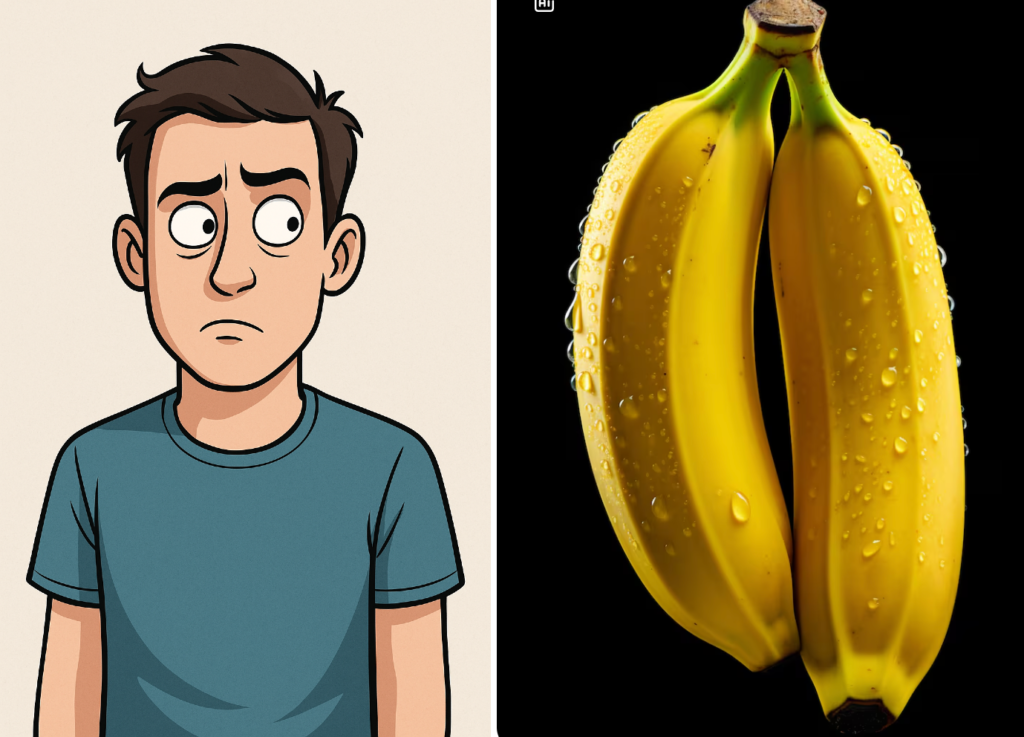Dandruff is a common condition that affects the scalp, causing itching, flaking, and sometimes redness. It is a chronic skin condition that affects millions of people worldwide, regardless of age or gender. Dandruff is not contagious and is usually not a serious medical condition, but it can be embarrassing and uncomfortable.
Dandruff occurs when dead skin cells on the scalp are shed more quickly than normal. When this happens, the cells clump together, forming visible flakes that can be seen on the scalp, hair, and shoulders. Dandruff can be mild, moderate, or severe, and the severity can fluctuate over time. It’s a common issue, but it’s trickier than it seems at first glance. Dandruff is difficult to pin down precisely since it shares symptoms with seborrheic dermatitis and other skin disorders that generate a scaly scalp.
In this article, we will walk you through its causes, its different manifestations and treatments, and the rich choice of food and supplements that will help to keep dandruff at bay. What follows is the crucial information. and help you to take care if you are prone to dandruff. However, first, let us dive straight into the factors that can contribute to the development of dandruff.

Seborrheic Dermatitis
Seborrheic dermatitis is a common skin condition that causes red, scaly, and flaky patches of skin on the scalp, face, and other parts of the body. It is caused by an overgrowth of yeast on the skin and can be triggered by stress, hormones, and certain medications.
Dry Skin
Dry skin is a common cause of dandruff. When the skin on the scalp is dry, it can become flaky and itchy, leading to the development of dandruff.
Malassezia
Malassezia is a type of fungus that is found on the scalp of most people. In some people, however, it can cause dandruff by triggering an inflammatory response in the scalp.
Not Shampooing Enough
Not shampooing enough can cause a buildup of dead skin cells, oil, and other debris on the scalp, leading to the development of dandruff.
Shampooing Too Often
Shampooing too often can strip the scalp of its natural oils, leading to dryness and flakiness. This can exacerbate dandruff symptoms.
Sensitivity to Hair Care Products
Some people may be sensitive to certain hair care products, such as hair sprays, gels, and mousses, which can cause irritation and flaking of the scalp.
Medical Conditions
Certain medical conditions, such as psoriasis, eczema, and Parkinson’s disease, can cause dandruff by increasing the turnover of skin cells on the scalp.
Diet
Diet can also play a role in the development of dandruff. Consuming too much sugar or fatty foods can increase the production of sebum, a natural oil produced by the skin that can contribute to the development of dandruff.
Treatments and easy home remedies
There are a variety of treatments available for dandruff, both over-the-counter and prescription, as well as several easy home remedies that can help to alleviate symptoms. The choice of treatment depends on the severity of dandruff and the underlying cause.
Over-the-Counter Treatments:
Anti-Dandruff Shampoos
Anti-dandruff shampoos are the most common treatment for dandruff. They contain ingredients like zinc pyrithione, salicylic acid, coal tar, and ketoconazole, which can help to reduce inflammation and control the growth of yeast on the scalp. These shampoos should be used regularly, as directed, and massaged into the scalp for a few minutes before rinsing off.
Tea Tree Oil
Tea tree oil has natural antifungal and anti-inflammatory properties that can help to reduce the symptoms of dandruff. It can be added to shampoo or diluted with a carrier oil like coconut oil and massaged into the scalp.
Apple Cider Vinegar
Apple cider vinegar has antibacterial and antifungal properties that can help to reduce inflammation and control the growth of yeast on the scalp. It can be diluted with water and applied to the scalp, left for a few minutes, and then rinsed off.
Aloe Vera
Aloe vera has natural antibacterial and anti-inflammatory properties that can help to soothe the scalp and reduce itching and flaking. Aloe vera gel can be applied directly to the scalp and left for 30 minutes before rinsing off.
Prescription Treatments:
Topical Steroids
Topical steroids can be used to reduce inflammation and itching of the scalp. They are available in creams, lotions, and foams, and should be used as directed by a healthcare provider.
Topical Antifungals
Topical antifungals can be used to control the growth of yeast on the scalp. They are available in creams, lotions, and shampoos, and should be used as directed by a healthcare provider.
Prescription Shampoos
Prescription shampoos may contain stronger doses of active ingredients like ketoconazole or ciclopirox, and can be more effective than over-the-counter shampoos.
Home Remedies:
Coconut Oil
Coconut oil has natural moisturizing properties that can help to reduce dryness and flaking of the scalp. It can be warmed and massaged into the scalp, left for a few hours, and then washed out with shampoo.
Lemon Juice
Lemon juice has natural antifungal properties that can help to reduce the growth of yeast on the scalp. It can be applied to the scalp, left for a few minutes, and then rinsed off.
Baking Soda
Baking soda can help to reduce the acidity of the scalp, which can contribute to the growth of yeast. It can be mixed with water to form a paste, applied to the scalp, left for a few minutes, and then rinsed off.
Garlic
Garlic has natural antifungal properties that can help to reduce the growth of yeast on the scalp. It can be crushed and mixed with honey to form a paste, applied to the scalp, left for a few minutes, and then rinsed off.
Foods and Supplements to reduce dandruff
While there are no specific foods that can directly cure dandruff, a healthy and balanced diet that includes certain nutrients can help to reduce the severity of symptoms. Some nutrients that are believed to help reduce dandruff include:
Omega-3 Fatty Acids
Omega-3 fatty acids have anti-inflammatory properties that can help to reduce the inflammation and itching associated with dandruff. Foods that are rich in omega-3s include fatty fish like salmon, mackerel, and sardines, as well as walnuts, flaxseeds, and chia seeds.
Vitamin B
Vitamin B, specifically B6, and B12, can help to reduce the overproduction of sebum on the scalp, which can contribute to dandruff. Foods that are rich in vitamin B include poultry, fish, eggs, dairy products, and fortified cereals.
Zinc
Zinc is believed to help reduce the growth of yeast on the scalp, which can contribute to dandruff. Foods rich in zinc include oysters, beef, pork, chicken, beans, nuts, and whole grains.
Vitamin D
Vitamin D has anti-inflammatory properties that can help to reduce inflammation and itching on the scalp. Foods that are rich in vitamin D include fatty fish, egg yolks, and fortified dairy products.
Overall, a healthy and balanced diet that includes a variety of nutrient-rich foods can help to support overall scalp health and reduce the severity of dandruff symptoms. It’s important to note that dietary changes alone may not be enough to completely cure dandruff, and individuals should still use other treatment options as recommended by their healthcare provider.
Social obligation of the dandruff menace
Dandruff is a common scalp condition that affects a large percentage of the population worldwide. While dandruff may not be a life-threatening condition, it can cause a significant amount of discomfort and embarrassment, which can affect a person’s social life, self-esteem, and overall quality of life.
Some of the problems faced by individuals with dandruff include:
- Itching and Irritation: Dandruff can cause itching and irritation on the scalp, which can be uncomfortable and distracting. This can affect a person’s ability to concentrate and perform daily activities.
- Embarrassment and Social Stigma: Dandruff can be unsightly, and the white flakes can be visible on dark clothing, causing embarrassment and social stigma. This can lead to a lack of self-confidence and social isolation.
- Hair Loss: In severe cases, dandruff can cause hair loss due to inflammation and damage to hair follicles.
- Psychological Distress: Dandruff can cause significant psychological distress, including anxiety, depression, and stress.
As dandruff is a common scalp condition that affects a large percentage of the population, there is a social obligation to address this issue. This includes raising awareness about dandruff’s causes and treatment options, providing access to affordable and effective treatments, and reducing the stigma associated with the condition.
Healthcare providers, public health organizations, and the media can play an essential role in raising awareness about dandruff and its impact on individuals’ physical and mental health. They can also provide information about effective treatment options and encourage individuals to seek medical attention if they are experiencing persistent symptoms.
Moreover, it is important for individuals to maintain good scalp hygiene and adopt healthy lifestyle habits to prevent and manage dandruff. This includes washing hair regularly with a gentle shampoo, avoiding harsh hair products, eating a healthy and balanced diet, managing stress, and avoiding excessive alcohol consumption and smoking.
Dandruff with a foul smell
If you are experiencing a foul odor or “stinky” scalp when you have dandruff, it is likely due to a type of fungal infection called Malassezia. This yeast-like fungus is a normal part of the scalp’s microbiome, but when it grows excessively, it can cause dandruff and an unpleasant odor.
Malassezia feeds on the natural oils produced by the scalp, causing an overgrowth of the fungus. As it breaks down these oils, it produces a byproduct called oleic acid, which has a distinct odor. When dandruff flakes mix with the oils and bacteria on the scalp, it can cause an even more unpleasant odor.
In addition to causing an unpleasant odor, Malassezia overgrowth can also cause itching, flaking, and inflammation on the scalp. If left untreated, it can lead to more severe scalp conditions like seborrheic dermatitis.
Treatment for Malassezia overgrowth typically involves using medicated shampoos that contain antifungal ingredients like ketoconazole or selenium sulfide. These shampoos help to reduce the growth of Malassezia and alleviate the symptoms of dandruff, including the unpleasant odor.
In addition to using medicated shampoos, it is also important to maintain good scalp hygiene, including washing the hair regularly, avoiding harsh hair products, and avoiding excessive scratching or picking at the scalp.
If you are experiencing a foul odor or other symptoms of dandruff, it is essential to seek medical attention from a healthcare provider or dermatologist. They can help to diagnose the underlying cause of your symptoms and recommend appropriate treatment options to alleviate the unpleasant odor and other symptoms associated with dandruff.

Conclusion
Dandruff is an extremely prevalent scalp problem that can lead to a great deal of discomfort and shame. Although it’s not always fatal, it can have serious consequences for a person’s physical and emotional well-being, relationships, and sense of self-worth. In order to effectively prevent and manage dandruff, it is crucial to increase public understanding of the condition and its treatment options, lessen the negative connotations associated with it, and encourage good scalp cleanliness and general lifestyle choices.
There are several treatments available for dandruff, including over-the-counter and prescription options, as well as several easy home remedies that can help to alleviate symptoms. The choice of treatment depends on the severity of dandruff and the underlying cause. Individuals should consult with a healthcare provider to determine the most effective treatment plan.
Dandruff is an irritating scalp ailment that often manifests as itchiness, flakes, and sometimes burning. Causes include seborrheic dermatitis, dry skin, Malassezia, not washing enough, shampooing too often, sensitivity to hair care products, medical disorders, and food. Understanding what triggers dandruff can lead to more targeted treatment and better symptom management.
Disclaimer: This information is for educational purposes only, and no medical advice should be inferred from it. Before changing your diet or adding supplements, please talk to your doctor.
The author’s views are his or her own. The facts and opinions in the article have been taken from various articles and commentaries available in the online media and Eastside Writers does not take any responsibility or obligation for them.
Note: Contact our Writers at www.eastsidewriters.com for writing Blogs/Articles on any niche. We have experts in various domains from Technology to Finance and from Spirituality to Lifestyle and Entertainment.






